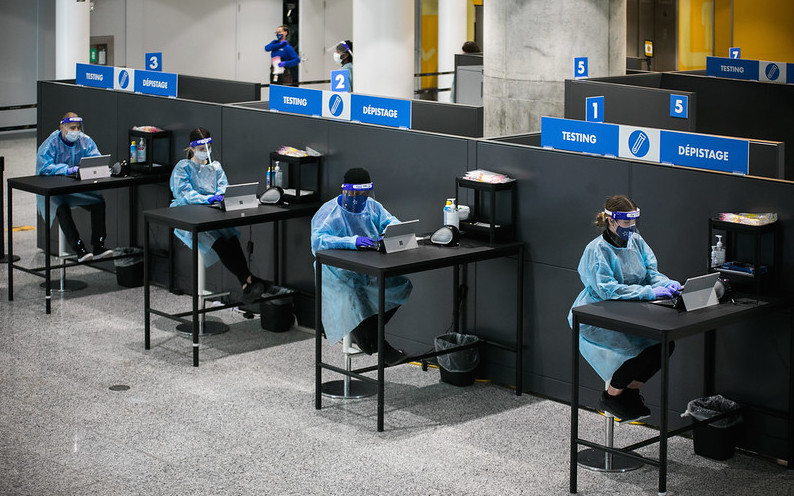I’d like to add, a bit late, to the parade of assessments marking the anniversary of the pandemic. To my surprise, I feel relatively upbeat. This is true especially regarding the role of tech.
I agree with the almost always readable Janan Ganesh in the Financial Times, who points to the unexpectedly fast discovery and deployment of vaccines. Not long ago, experts were still saying, if we find any. It makes you wonder what else could be speedily settled — cancer, dementia, poverty, criminal justice — if resources were focused in the same way.
Ganesh also points to the sturdiness of supply lines, something you could’ve easily had nightmares over. They’ve held up, partly due to the role of the last, heroic, link — couriers and drivers — but also because of the tech.
I’d add the ultimate tech icon of our age, the internet. If I opine that, 30 years ago, we’d have had to endure lockdowns and isolation with our only links to the outside being land lines, people’s jaws drop. It’s too awful to imagine.
It’s surprising because I swim in a long river of technopessimism. I grew up in the shadow of The Bomb, which thwarted the high hopes for nuclear power. Like the Sorcerer’s Apprentice in Disney’s Fantasia, we created disaster, not progress, with our imperfect knowledge. We knew not what we did.
Thinkers added to the gloom, from Heidegger, the brilliant, morally flawed existentialist, to Jacques Ellul, a renowned French academic in the 1960s.
Canadians were notable among tech gloomsters. Harold Innis, one of my beacons, argued that the printing press, for gawdsake, was partly responsible for two world wars and the Holocaust. Marshall McLuhan spun cheerful phrases (“the medium is the message;” “the global village”) but he was a dour Catholic who hoped despairingly that humans might take hold of the technologies that manipulated them. Philosopher George Grant, a technophobic Ellulite, added his nationalist despair: Canada was destined to be consumed by the U.S.
Innis, McLuhan and Grant were eminent profs, bolstering my belief that despair goes better with tenure. If your income and retirement aren’t secure, you’re less prone to give up, and more likely to keep looking for the light.
The latest explosion of tech overenthusiasm — for the internet in the 1990s — made anyone with a brain even warier. There were idiotic claims: it was the best thing since “the capture of fire.” Another Magna Carta. The basis for a new reality, “founded in the eternal truths of the American Idea.”
Yet here we are, (at least somewhat) saved by the tech. It surely wasn’t the politicians, largely mediocre, with their mixed bags of MDs and generals.
It makes me think the technogloom of yesteryear may’ve had more to do with a depressive overhang from the war and camps than sober assessment.
A story this week told how scientists had made “clumps of human tissue” act like “early-stage embryos.” They even “attach to plastic culture dishes, mimicking the process of implantation in the uterus.” Talk about your sorcery — lots to fantasize morbidly about there. Yet it could also lead to understanding birth defects, miscarriages or effects of viral infection on early development.
I find it, again surprisingly, not upsetting. We came from the stuff of nature and it’s what we return to. We weren’t dropped into nature from another realm or dimension. Technology too slips out from nature and works back into or on it. Sometimes its effects are bracing and often they’re not, but none of it is alien. If we monkey around with the world, we’re being what we are — monkeys. I think we should calm down about technology, and I’m talking to myself.
It makes me think of Wordsworth, the poet-champion of unsullied nature in the age of Britain’s Satanic industrial explosion. Crossing Westminster Bridge en route to London one early morning in 1802, he was stunned by the corrupt city’s serene beauty. He never saw or felt “a calm so deep … Dear God! the very houses seem asleep / And all that mighty heart is lying still.” It took guts to backtrack on his own brand that way. Bravely done, Wordsworth.
At any rate, by way of reality check, there are still the variants. No time to luxuriate in the positive now — probably ever.
Rick Salutin writes about current affairs and politics. This column was first published in the Toronto Star.
Image credit: Premier of Ontario Photography/Flickr



